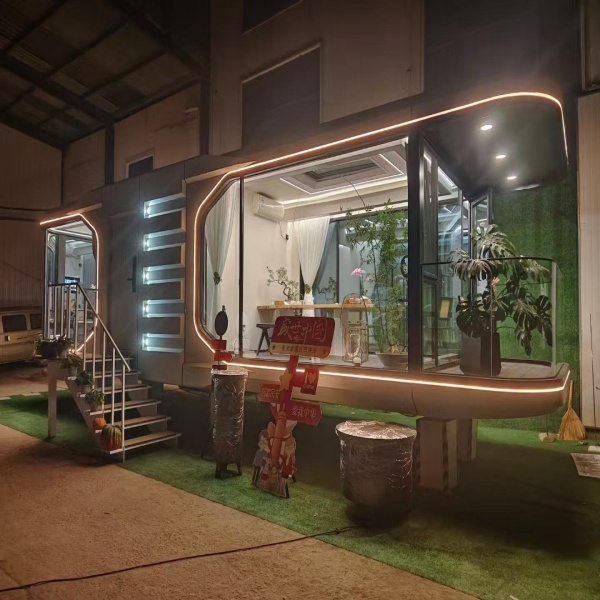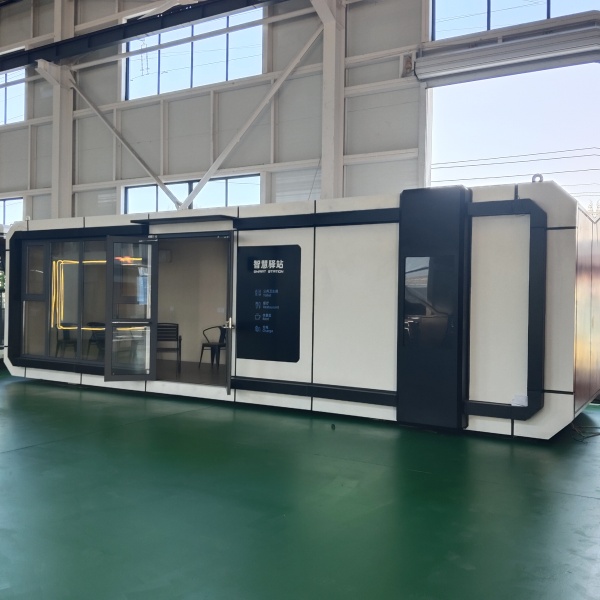-
E-mail
Austin120521@outlook.com -
E-mail
sales@jujiuhouse.com -
Telephone
+86-17864099991 -
Telephone
+86-17854044442
- Chinese
- French
- German
- Portuguese
- Spanish
- Russian
- Japanese
- Korean
- Arabic
- Irish
- Greek
- Turkish
- Italian
- Danish
- Romanian
- Indonesian
- Czech
- Afrikaans
- Swedish
- Polish
- Basque
- Catalan
- Esperanto
- Hindi
- Lao
- Albanian
- Amharic
- Armenian
- Azerbaijani
- Belarusian
- Bengali
- Bosnian
- Bulgarian
- Cebuano
- Chichewa
- Corsican
- Croatian
- Dutch
- Estonian
- Filipino
- Finnish
- Frisian
- Galician
- Georgian
- Gujarati
- Haitian
- Hausa
- Hawaiian
- Hebrew
- Hmong
- Hungarian
- Icelandic
- Igbo
- Javanese
- Kannada
- Kazakh
- Khmer
- Kurdish
- Kyrgyz
- Latin
- Latvian
- Lithuanian
- Luxembou..
- Macedonian
- Malagasy
- Malay
- Malayalam
- Maltese
- Maori
- Marathi
- Mongolian
- Burmese
- Nepali
- Norwegian
- Pashto
- Persian
- Punjabi
- Serbian
- Sesotho
- Sinhala
- Slovak
- Slovenian
- Somali
- Samoan
- Scots Gaelic
- Shona
- Sindhi
- Sundanese
- Swahili
- Tajik
- Tamil
- Telugu
- Thai
- Ukrainian
- Urdu
- Uzbek
- Vietnamese
- Welsh
- Xhosa
- Yiddish
- Yoruba
- Zulu
- Kinyarwanda
- Tatar
- Oriya
- Turkmen
- Uyghur

folding prefabricated house
The Art and Science of Folding Prefabricated Houses
The concept of folding prefabricated house has revolutionized how we think about modern construction. It's a bit of magic—unfold a compact design into a fully functional space. People often mistake these as temporary fixes, but there's more beneath the surface.
Grasping the Potential
At first glance, folding prefabricated houses might seem like a niche solution for temporary housing. The truth is, their potential goes far beyond that. These structures are not just for emergencies or quick fixes; they're about adaptable, sustainable living. When you look at SHANDONG JUJIU INTEGRATED HOUSING CO, LTD and their innovations, it's clear they are spearheading a shift towards more flexible housing solutions.
Consider the logistics. Traditional buildings come with layers of red tape—permits, inspections, endless delays. Prefabricated units simplify the process. Blocks of space that can be folded down, transported easily, and assembled swiftly redefine efficiency. That's particularly useful in areas with harsh climates or limited access.
But it's not just about speed. Durability is key here. Companies like Shandong Jujiu emphasize quality materials, ensuring that these houses withstand the test of time—and elements.
Design Considerations
Designing a folding prefabricated house isn't just about packing things neatly. The challenge lies in making the space livable and efficient. At SHANDONG JUJIU, the focus is on integrating robust engineering with user-friendly designs. There's a delicate balance between form and function.
I've seen designs evolve from basic rectangular forms to complex, aesthetically pleasing structures. It's about creativity marrying practicality. Each component has to fit perfectly when folded and unfold without a hitch. Precision is paramount, and there's no room for error.
The market demands versatility—spaces that serve multiple functions. One area could act as a living room, office, or even a workshop. The demand for multi-purpose spaces is growing, aligning with modern minimalist lifestyles.
Common Challenges
Despite their benefits, folding prefabricated houses aren't without hurdles. Transportation logistics can be a nightmare. You might have a perfectly designed house that doesn't fit standard shipping containers. Width, height, and weight are all constraints to consider.
There's also a learning curve in construction and installation. An improperly trained team can lead to costly mistakes. Thus, companies like SHANDONG JUJIU invest heavily in training and quality control to mitigate such risks.
Local regulations can throw a wrench in the best-laid plans. Building codes differ drastically between regions, and you must ensure compliance without compromising the core functionality or aesthetics of the house. It requires a tailored approach to each project, often needing innovative solutions on-site.
Market Evolution
The market for these houses is expanding, with more people attracted to their eco-friendliness and economic advantages. As land prices soar, the compact, adaptable nature is incredibly appealing. These houses offer a sensible alternative to traditional housing, which is increasingly out of reach for many.
With Shandong Jujiu and others at the forefront, developments continue in material sciences and architectural technology. Innovations in insulation, solar integration, and smart home tech make these houses more sustainable and self-sufficient.
This evolution isn't just about the materials but also how we view living spaces—the call for sustainable living is more urgent than ever. Economies of scale and growing demand are rapidly lowering costs, making these houses viable for a broader demographic.
Future Directions
Looking ahead, I see folding prefabricated houses playing a vital role in urban planning. They offer a solution to overpopulation and urban sprawl, allowing cities to expand vertically rather than horizontally. Modularity provides a toolkit architects and planners can use to create dynamic, adaptable urban environments.
The emphasis will likely swing towards customizability. While standard designs are cost-effective, the ability for customers to personalize aspects of their homes will drive future sales. Modular does not have to mean monotonous, and companies are starting to offer custom solutions without sacrificing the benefits of prefabrication.
Ultimately, these houses herald a shift in how we conceive living spaces. They're more than shelters; they're about redefining space, sustainability, and comfort. As long as companies like SHANDONG JUJIU continue to innovate, we're merely scratching the surface of what's possible with folding prefabricated homes.
Related products
Related products
Best selling products
Best selling products-
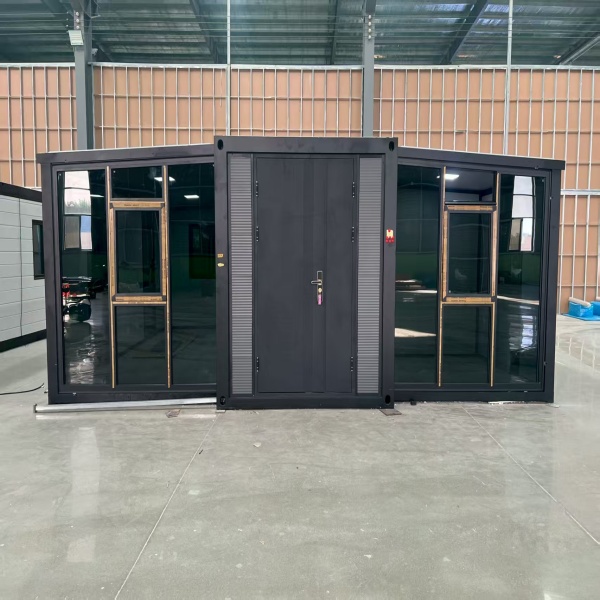 Customizable Office Mobile Home with Flat Roof and Double Wing Expansion Box, Convenient Container
Customizable Office Mobile Home with Flat Roof and Double Wing Expansion Box, Convenient Container -
Two Wing Folding Expandable Container House
-
 Customized Expandable Container House Holiday Home Folding Prefab Container House with Bathroom and Kitchen
Customized Expandable Container House Holiday Home Folding Prefab Container House with Bathroom and Kitchen -
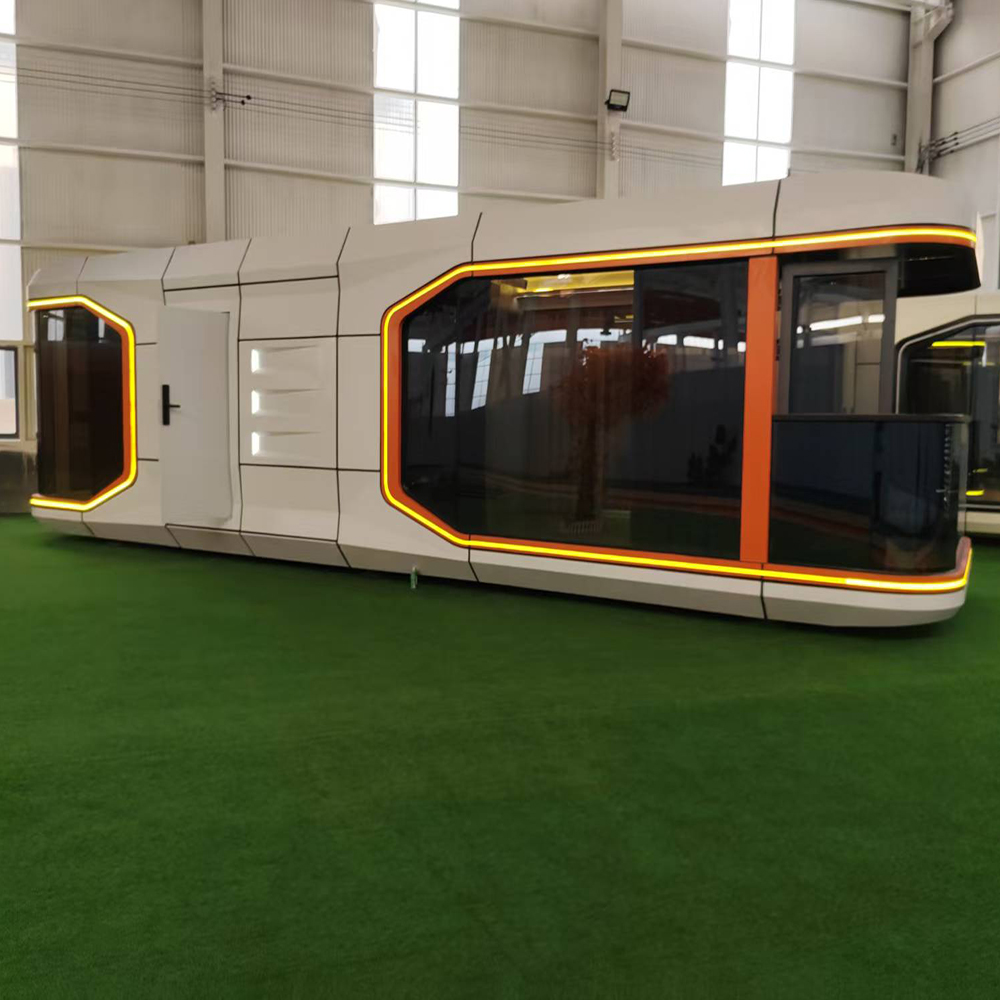 Standard Modern Camping Pod Space Prefabricated Portable Mobile Capsule Room Hotel Bathroom Prefabricated Spaceship House
Standard Modern Camping Pod Space Prefabricated Portable Mobile Capsule Room Hotel Bathroom Prefabricated Spaceship House -
 Easy Install Customized Detachable Container Homes Extendable House Prefab 2 Floors Expandable Container House
Easy Install Customized Detachable Container Homes Extendable House Prefab 2 Floors Expandable Container House -
 Reasonable Price 1 Bedroom Modular Container House Folding Container Home for Villa or Apartment Use
Reasonable Price 1 Bedroom Modular Container House Folding Container Home for Villa or Apartment Use -
 Detachable Design Prefabricated Container House Portable Modular Office Building Folding Container House
Detachable Design Prefabricated Container House Portable Modular Office Building Folding Container House -
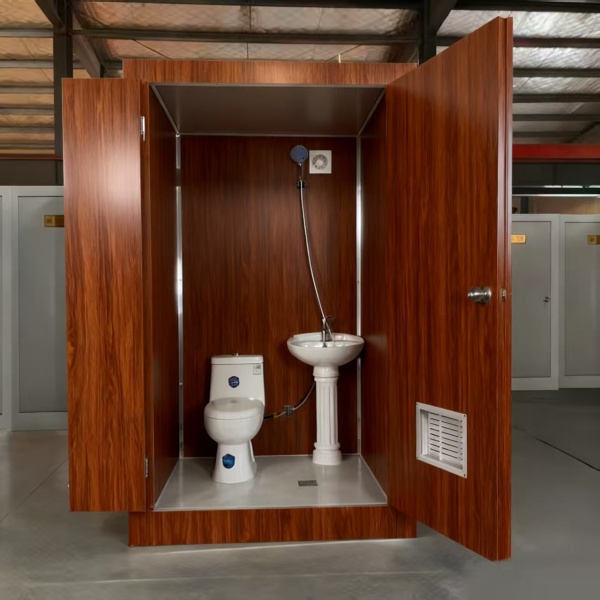 Portable outdoor camping bathroom, mobile toilet, prefabricated modular villa & rental of outdoor and indoor showers
Portable outdoor camping bathroom, mobile toilet, prefabricated modular villa & rental of outdoor and indoor showers -
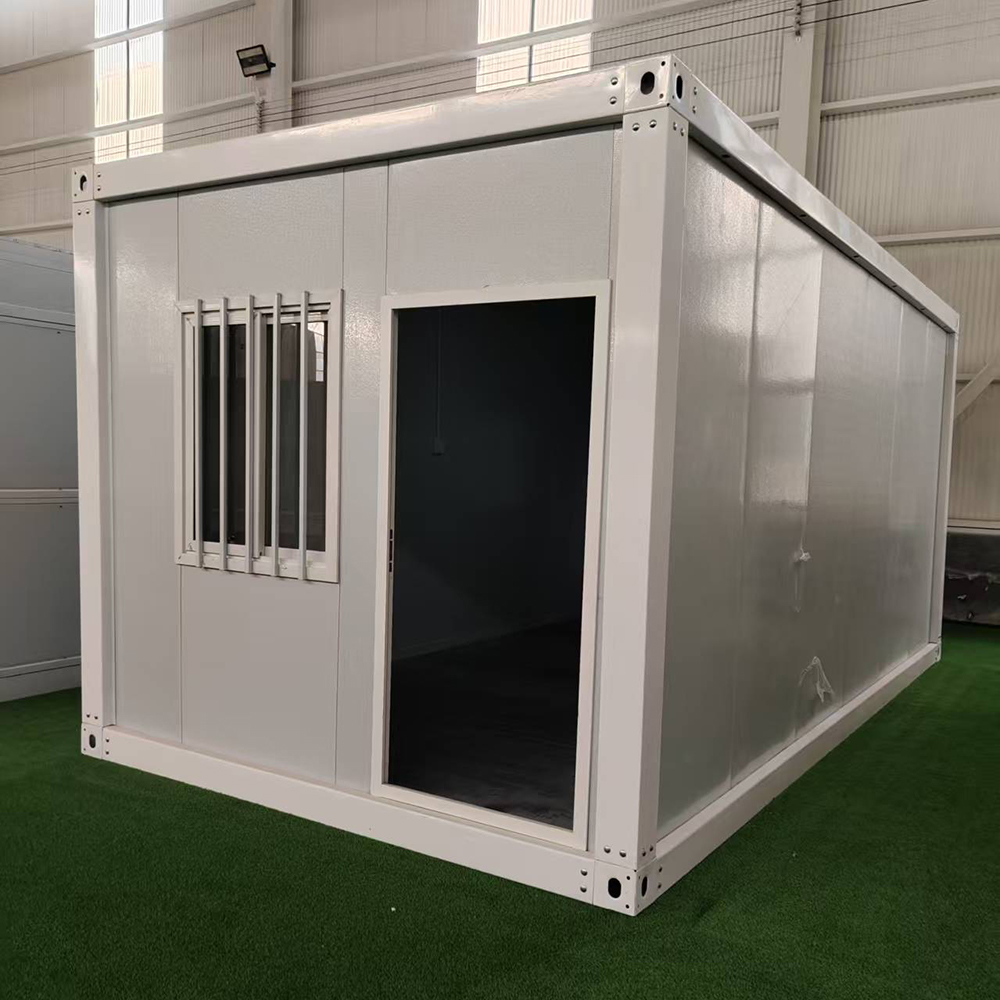 Folding Container Moving House Modular Office Container House Prefab Container for Outdoor Use
Folding Container Moving House Modular Office Container House Prefab Container for Outdoor Use -
 Waterproof folding container house – mobile accommodation for campsites/scenic spots
Waterproof folding container house – mobile accommodation for campsites/scenic spots -
 Movable Prefabricated Container House Villas Modular Portable Homes 1 Bedroom Container House Offices Apartments
Movable Prefabricated Container House Villas Modular Portable Homes 1 Bedroom Container House Offices Apartments -
 Factory Direct Sales Office Folding Container Luxury House Living Container House
Factory Direct Sales Office Folding Container Luxury House Living Container House
Related search
Related search- Buy prefabricated home folding container house
- China apple cabin tiny home
- Buy fold out house boxabl
- folding container house
- China folding container house for sale
- Buy assembled two bedroom home prefab expandable container house
- China expandable house container
- expandable modular house
- fold out houses from boxabl
- Buy container houses prefabricated homes modern prefab modular house









